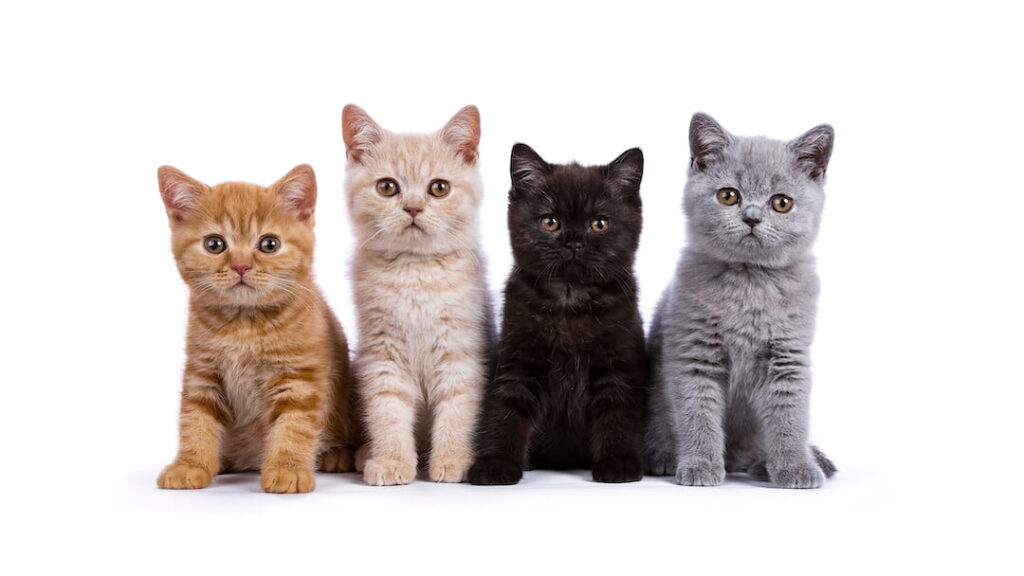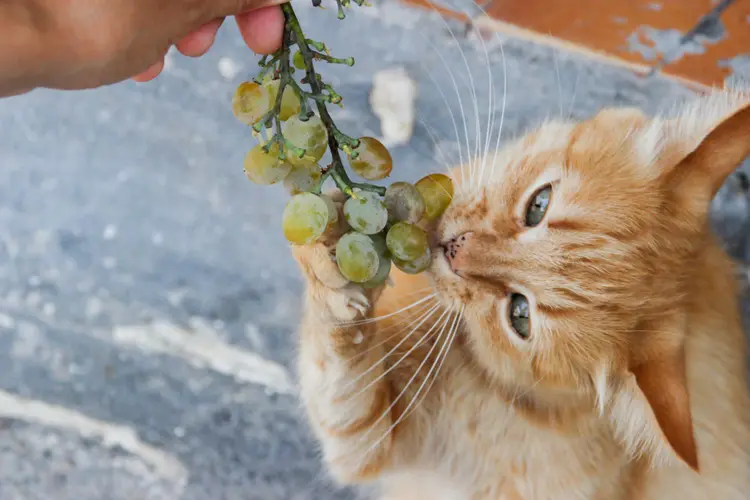
Can cats eat grapes Cat owners often worry about the safety of feeding their pets human foods. This concern grew after reports highlighted how certain foods can be harmful to animals, garnering significant media attention. Among the most common toxic foods for cats are onions, garlic, chocolate, alcohol, and large quantities of fish. For a comprehensive guide on what cats can and cannot eat, check out “The Ultimate Guide to What Cats Can’t Eat.”
Many pet owners also question whether cats can eat grapes, a fruit known to be toxic to dogs. Read on to discover the risks associated with grapes and how to safely feed fruits to your feline friend.

A History of the Grape
Grapes have been around for 6,000 to 8,000 years and grow in clusters, with numerous varieties found across the globe. These spherical fruits come in seeded or seedless forms and typically start green, turning purple, red, or black as they ripen. Grapes can be enjoyed fresh or used to make a variety of products, including jam, jelly, grape seed oil, wine, juice, vinegar, or dried into raisins.
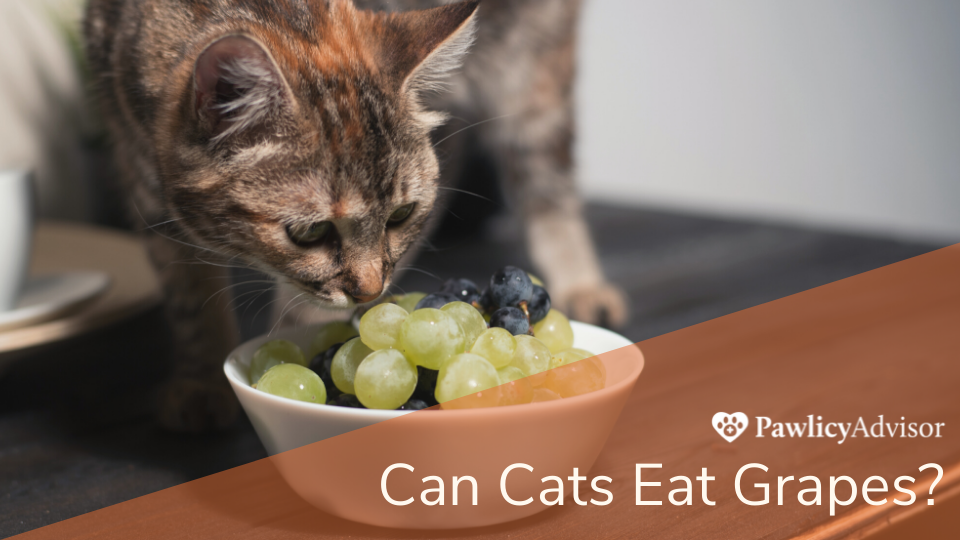
So, can cats eat grapes?
In moderation, grapes are generally safe for cats. While most cats aren’t interested in fruit, some might enjoy the soft, moist texture as an occasional treat. Grapes offer antioxidants and nutrients, are fat-free, and low in calories, making them a potentially healthy snack for your feline.
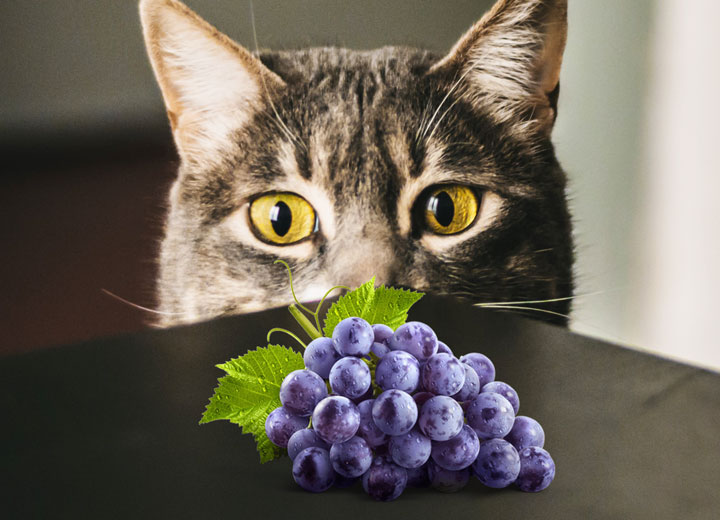
The Dangers of Grapes for Cats
Eating large quantities of grapes can lead to gastrointestinal issues in cats, such as diarrhea. Although it’s rare, consuming grape stems and plants might cause gastrointestinal obstruction because these parts are tough to digest. Symptoms of trouble include vomiting, diarrhea, lethargy, abdominal pain, straining to defecate, and a reduced appetite.
While grape and raisin toxicity is well-documented in dogs, there is no confirmed evidence of such toxicity in cats. It’s worth noting that the infrequency with which cats eat grapes and raisins might contribute to the lack of documented cases. For more information on the risks of grapes and raisins for dogs, check out our article: “Grape and Raisin Toxicosis in Dogs.”
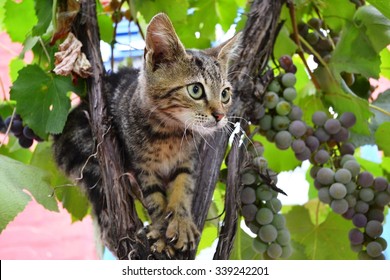
Do Cats Need Grapes?
Grapes do not provide any essential nutrients that cats need on a regular basis. What’s crucial for feline health is a high-quality, AAFCO-approved cat food that meets all their dietary requirements. For more insights on your cat’s nutritional needs, check out our article on “Nutrition in Cats.”

The Safest Way to Feed Grapes to Cats
If you choose to give grapes to your cat, ensure they are small, clean, and cut-up pieces of fresh grape. Avoid feeding your cat grape stems or leaves, as these parts can be difficult to digest. However, even though cats can eat green grapes in small amounts, it’s best to opt for safer snacks and treats that are specifically designed for felines.
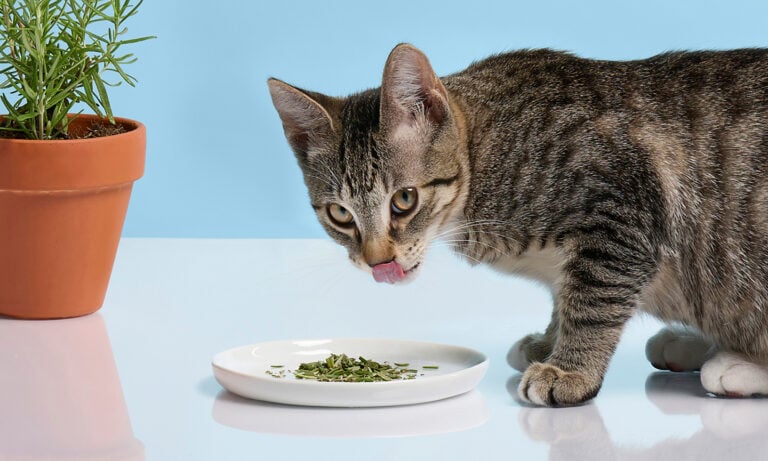
How Many Grapes Can You Give a Cat?
A single medium-sized grape, cut into small pieces, is more than enough for a cat. However, there are more nutritious and suitable options available for feline diets, so it’s generally better to choose other snacks and foods that offer more health benefits for your cat.

Cats Be Allergic to Grapes?
Although cats can theoretically be allergic to any substance, allergies to grapes are quite rare.

